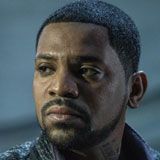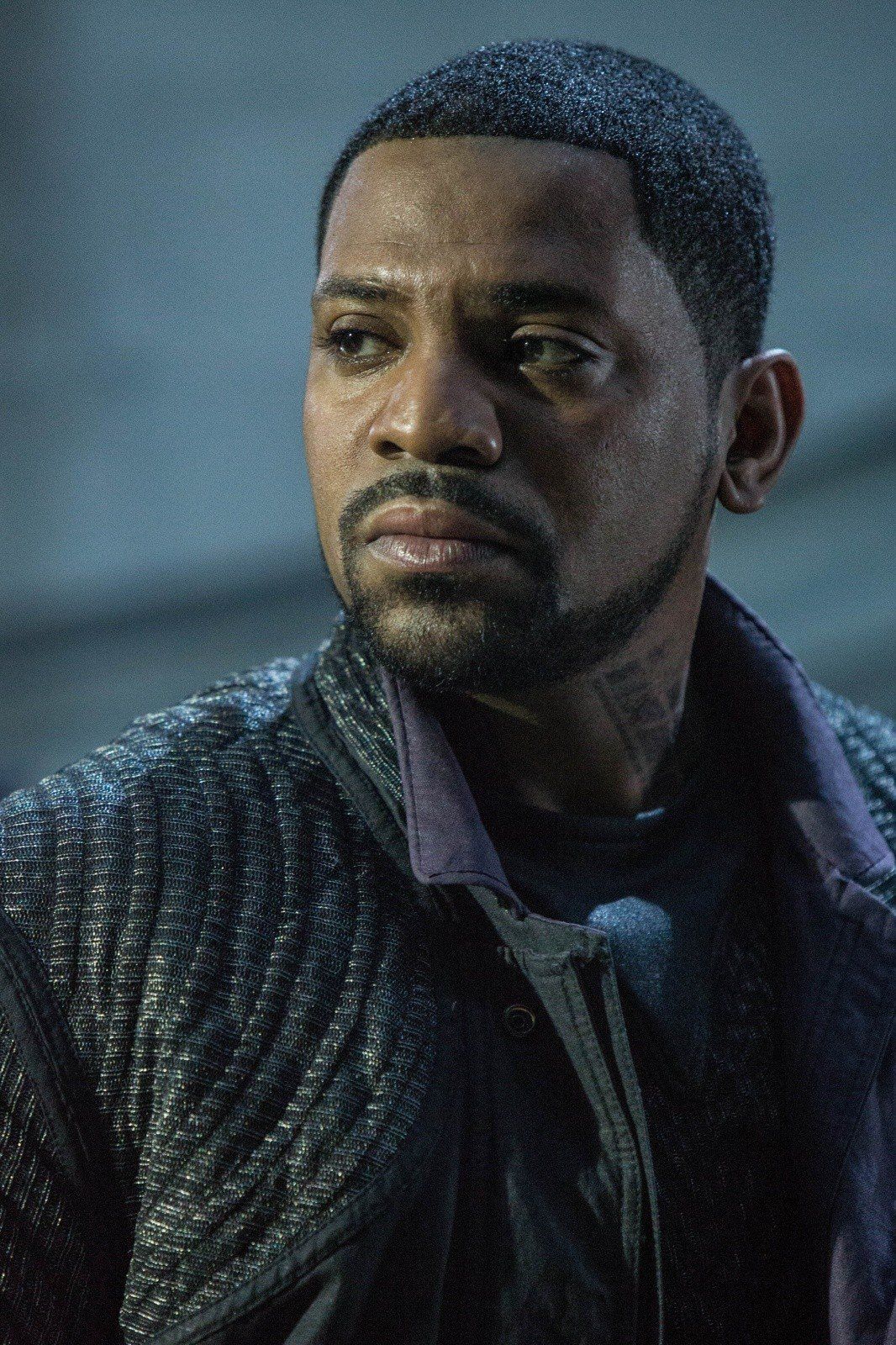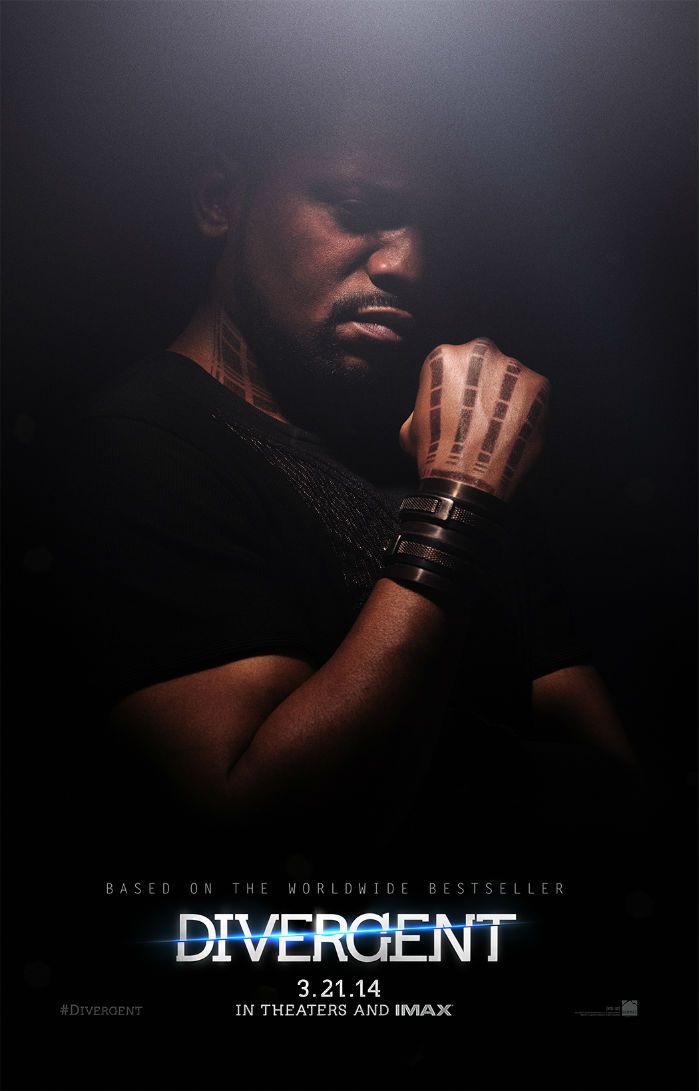When Mekhi Phifer started his career, teen movies were in a bit of a lull. The John Hughes era produced a spate of imitators that killed audiences’ appetites for stories about coming of age, and the young-adult adaptations that currently dominate screens were still a few years from finding their commercial footing. Now in his late 30s, Phifer has outgrown the leads in such films, but he’s exploring a new niche as one of their mentors in Divergent, playing a gruff leader of the faction known as Dauntless who puts the heroine through her paces. And with the possibility of exploring his character with as much depth as he once might have examined a troubled teen, Phifer is eager to throw himself into this unique challenge.
Spinoff Online spoke with Phifer at the recent Los Angeles press day for Divergent, where the actor detailed how he became involved with director Neil Burger’s adaptation, and offered his impressions of the character. In addition to talking about the opportunities of joining a film that will be turning into a franchise, he examined the differences in the industry between his own teen days and now, and reflected on the struggles, and successes, in finding roles that best utilize his skills.
Spinoff Online: Maybe just to get started, talk about either how the character was presented to you or how you sort of initially defined him.
Mekhi Phifer : Well, it's interesting, because this is the first time I've been in a sequel-based film. And, you know, you don't really know who Max is. You don't know how he got to Dauntless, how he either got to become the leader of the Dauntless faction. So it was very interesting. And usually when you get a script you're able to read it from beginning to end and know your character arc so you kind of know where it's going so you play it in certain ways. This was very interesting for me because it's been sort of an unknown for me. I haven't read the second script yet. There's no script out so I don't know where he's going. It would have been easier if they had the first two scripts and you were able to read both of them. But that's what made it fun just sort of delving into the unknown.
That said, I imagine you’ve been on television shows where you obviously know what the character’s doing in one episode but not over the course of a season.
Well, what happens in television, usually what they do is they have what they call a show bible. And so obviously things change and characters can change and things like that but they sort of give you an overview of where they want to go with the season, so you're not just in the dark totally. This one for me was more of in the dark, because you can't even necessarily read the books and know exactly what's going to happen because it's an adaptation. So we certainly have a certain artistic license to sort of deviate from the actual text in the book, but even the TV shows that I've done, I was able to sit with the writers and say, “OK, so where are we going?” “Don't worry, in Episode 8 we're going to introduce your mother …” So you kind of know that certain things are going to happen, but you just don't know exactly what's going to happen.
Well, is it fun or difficult to be in a position where you are this sort of cryptic authority figure who we don't know sort of what his disposition is?
That's the sort of the joy of acting in certain respects, finding the character and the motivations. And I had to kind of do it on the fly, and Neil helped as well just to find what it is and who Max is and sort of define his energy and all of that. But I'm looking forward to knowing more about him in the second installment.
Well then, without sort of knowing where he's going, how did you define him and maybe what, if any, real-world parallel did you draw on to create him?
I compared him to sort of a no-nonsense general in, say, the Marines, kind of almost like Jack Nicholson was in A Few Good Men. Very sort of stoic, no-nonsense – you know, when I give you an order I want that order followed. There's no questioning. And I would imagine that's the reason why he was able to work his way up to be the leader of Dauntless. So I drew from just watching military movies, like if you look at sort of the drill sergeant in Full Metal Jacket, he starts out no-nonsense, this is what I expect of you and I don't want to hear anything about it. So that's kind how I looked at it, in a very militaristic fashion.
I've been watching your movies since the days of Clockers, and it's interesting to me that this kind of movie did not even exist at the time that you did that – movies about adolescence and coming of age then are much different than they were now. Is it easy to relate or sort of empathize with like the kinds of journeys that movies are made about characters today?
Absolutely. I mean, we grew up with John Hughes, Sixteen Candles and Breakfast Club and of those kinds of movies, [where] Molly Ringwald's unsure of herself and she just wants to get the guy and all that kind of stuff. So it's interesting to see the journey from that to this to where we are now. I think the way of the world now with the social media and the technology and all that kind of stuff and Hollywood really seeing that there's an audience obviously like the Twilight sagas and The Hunger Games and all that kind of stuff. Ender's Game, something like that, and those kind of films, there's a huge audience of kids that want to be represented. And so it's a lot different than those John Hughes days.
How difficult is it to find your way into not just this but sort of these kinds of movies in general? Does this appeal to you as an opportunity to do your first sequel-based film, or was this just a great role or great opportunity creatively that coincidentally happened to come with that context?
I looked at it from a multitude of directions. One, is the script is really good, and then yeah it was a great role. Like I said, this is my first time being a part of something like this. But I think the main motivation is that it was good. Getting to work with people like Neil Burger and all of the people that I knew at Summit who would be behind it. That was what one of the main appeals to it. And I rarely get to do films that my kids can go see. I've got a lot of R-rated movies, there's cursing and stuff. So a lot of the films that I do there's very, very few that aren't R-rated and edgy, so it was nice to be able to sort of open up to another demographic in this kind of film.
As that character was written, was he African-American?
No, I think he was ambiguous. I think they just liked what I brought to the table. I went in; I met with the producers and the casting directors. Neil was in Chicago at the time location scouting and prepping for the film. And they had me sort of read sort of like little monologue to the initiates. And they just liked the way I did it and the tone and the sort of authority nature in my voice. So it was just a perfect fit.
How hard is it to find opportunities even to audition for roles that are sort of a colorblind?
Usually a lot of times, to be quite honest, directors and producers kind of know who they want. And it's changed a little bit more, I mean, Sam Jackson does it a lot and then other people like that, to where you're sort of an authoritative sort of figure, but it's rare that things are just ambiguous. Usually they kind of know where they're going or who they want for certain things. So it's always a challenge to get past any stereotype and just be a man.
Looking at where this character might go, is it fun to play him to the hilt like a jerk right now, thinking that a movie or two movies from now we might get a flashback where he was deeply wounded from a relationship that enables you to justify that?
Absolutely. And that's what I'm hoping for the second one, that they delve into who he is and what makes him tick and sort of how he got to that place, because that's a big deal, to be the leader of the Dauntless faction. So I would love to see what got him there because he couldn't always just be that tough even as a kid. And who knows what faction he was a part of as a kid. Did he go through the ceremony and then choose Dauntless from Erudite or Amity? It would be interesting to see where he comes from.
What ultimately was the thing that you were either most surprised or gratified to sort of see finally come together?
Well, nothing really – I wasn't really fearful per se. I wasn't really fearful. I put my trust in the books and in the studio and in our director and in the writer or the script to sort of flush out characters. I mean, you never know what you're going to get when it comes to these type of things so I wasn't that fearful. But when I read the script it was really good, and I was really happy to be a part of it.
Divergent opens Friday nationwide.



